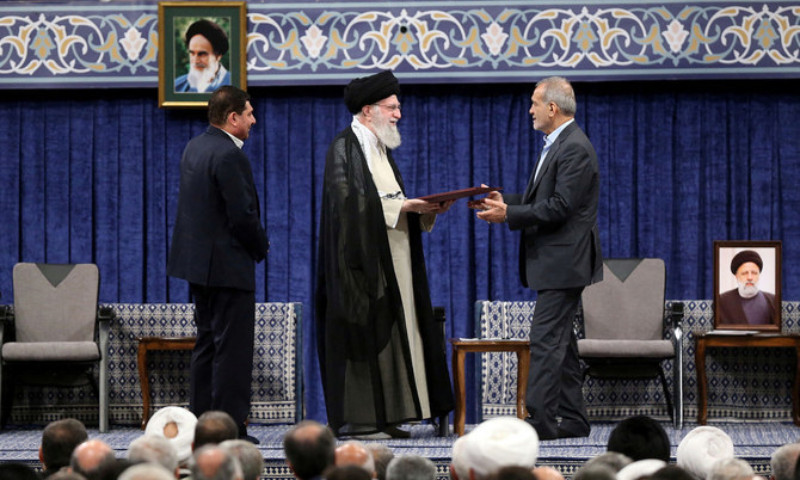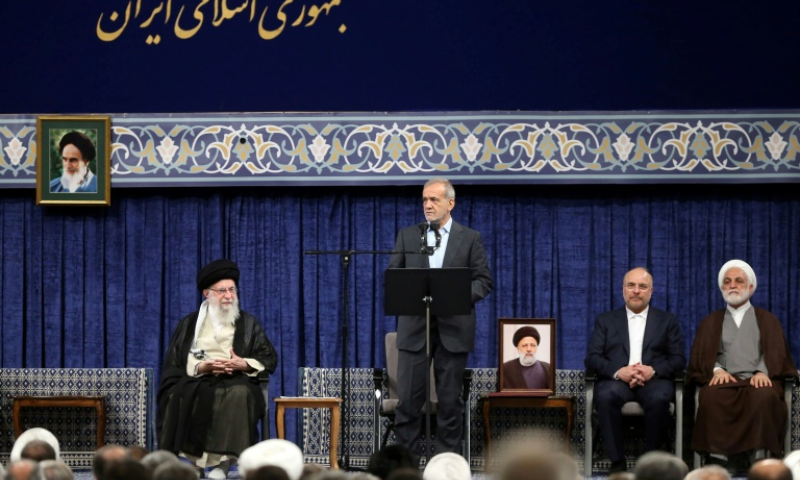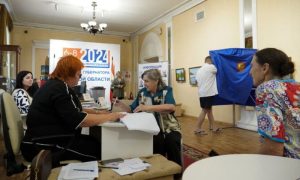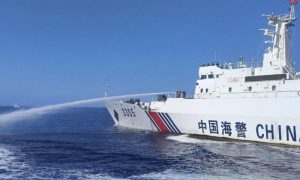TEHRAN: Iran’s supreme leader Ayatollah Ali Khamenei on Sunday gave his official endorsement of Masoud Pezeshkian as the Islamic Republic’s ninth president in a formal ceremony. This endorsement followed a runoff election in which the reformist Pezeshkian emerged victorious against ultraconservative candidate Saeed Jalili.
The ceremony, broadcast live on state television, took place in Tehran and was attended by senior Iranian officials, foreign diplomats, and members of the public. Khamenei’s endorsement was delivered through a message read by the director of his office, in which he praised Pezeshkian as “wise, honest, popular, and scholarly,” officially appointing him to lead the Islamic Republic of Iran.
The 69-year-old Pezeshkian, a renowned heart surgeon and long-time parliament member for Tabriz, is set to be sworn in before parliament on Tuesday. His appointment follows the sudden death of former President Ebrahim Raisi, who passed away in a helicopter crash in May. The presidential election, held on July 5, saw Pezeshkian secure over 16 million votes, approximately 54 percent of the total votes cast, in a runoff against Jalili.
Following Khamenei’s endorsement, the acting president Mohammad Mokhber officially transferred duties to Pezeshkian. Shortly thereafter, Pezeshkian appointed Mohammad Reza Aref, a prominent reformist and former vice president, as his first vice president. Aref, who previously served under President Mohammad Khatami, will bring extensive experience to Pezeshkian’s administration.
The endorsement and handover took place amid a nationwide heatwave, prompting the closure of banks and most government offices. The heatwave underscored the broader set of challenges facing Pezeshkian as he assumed office.
READ ALSO: Putin Warns to Restart Production of Nuclear Weapons if US Deploys Missiles in Europe
During his campaign, Pezeshkian had promised to work towards reviving the 2015 nuclear deal, which collapsed after the United States withdrew in 2018. He has also called for “constructive relations” with European countries, despite criticism of their past commitments to mitigate the impact of US sanctions.
In his address, Khamenei emphasized the need for the new administration to adopt an “active and effective” approach to regional issues, with a focus on neighbouring countries. He also expressed a tempered stance towards Europe, noting their historically unfavourable treatment of Iran, but leaving room for improved relations if attitudes change.
























